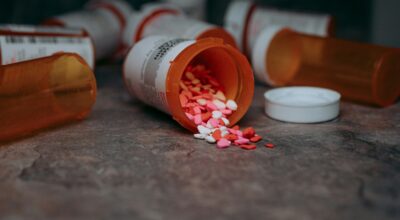Standing up for kids
Published 4:57 pm Monday, February 22, 2021
By Kathy Miles
Boyle County Agency for Substance Abuse Policy, Inc., Coordinator
We are entering the second year of the COVID-19 pandemic, and the staggering loss of lives and the accompanying grief has been the lead story for months. But the back stories of the effects of social isolation, job losses, and changes in community resources and safety nets are now in the headlines.
Since the pandemic is certainly not yet over, research results are still being compiled. People around the country are really beginning to understand, and are starting to develop post-COVID strategies to deal with the negative effects. Moving toward a healthier “new normal” is going to take a while.
The pandemic’s effects on children and youth are a hot topic right now. Concerning indicators of increasing mental health and substance use problems in youth are causing state and national experts to call for more accessibility for support services for kids and their families.
We are seeing a broad base of support in Kentucky for kids and their families to get easily accessible mental health and substance use help, have telehealth community-based options, and give the people who work with them the training and tools they need to do their jobs.
Since we are focusing more on kids right now because of COVID-19, it is an opportune time to talk about the kids who are living with “double trouble” – pandemic consequences, and active parental substance use disorder. Severe substance use disorder, or addiction, is a family disease.
It affects everyone in the family, as do other chronic diseases, but maybe sometimes more profoundly because it is a brain disease. Decision making and caregiving by parents who are in active addiction can be greatly impaired and certainly can be life threatening to the children.
Our local and state statistics on child neglect and abuse numbers reflect the prevalence of substance use disorders in Kentucky parents. Living with a parent who has an untreated substance use disorder is considered an “Adverse Childhood Experience” – abbreviated in health research now as ACE – and often has lifelong physical and behavioral health effects.
Combined with other ACEs, such as having an incarcerated parent, these kids have big challenges.
If we are developing a community plan for coming out of this pandemic that would help the youth in families with addiction, what would we like to see? Some items on the following list require some significant financial support, but some do not. All require a strong community vision that children are our future, and a commitment to building strong families who serve as the fundamental backbone of community life.
Here’s a start on a community plan:
• More adult community volunteers to mentor our kids in schools, youth sports, CASA, churches, and other organizations;
• More alternatives to incarceration for parents – bail reform, and treatment and recovery support combined with still holding offenders accountable; • Improved help for law enforcement in responding to the high percentage of calls they receive related to mental illness and/or substance use disorders;
• A Family Drug Court;
• Mental health and substance use education integrated into physical health care, school systems, faith communities, and workplace wellness services; • Emergency and transitional housing;
• Improved and increased child care opportunities;
• Community-based reentry services for men and women leaving incarceration;
• A variety of accessible, affordable, and culturally sensitive treatment and recovery support programs, including treatment during incarceration; and
• More “Second Chance” employers.
The good news is that we are already moving on this list.
Earlier this month, at the Rally for Kentucky Kids in Frankfort, a young advocate, Felicity Therese Krueger, spoke to legislators about the importance of standing up for every Kentucky kid. Her lived experience makes her an expert who should be heard.
Kentucky Youth Advocates reported her speech, which ended this way, “You never know what one child may be going through, so watch out for all of them no matter what. All kids need someone rooting for them.”
We couldn’t have said it better.






